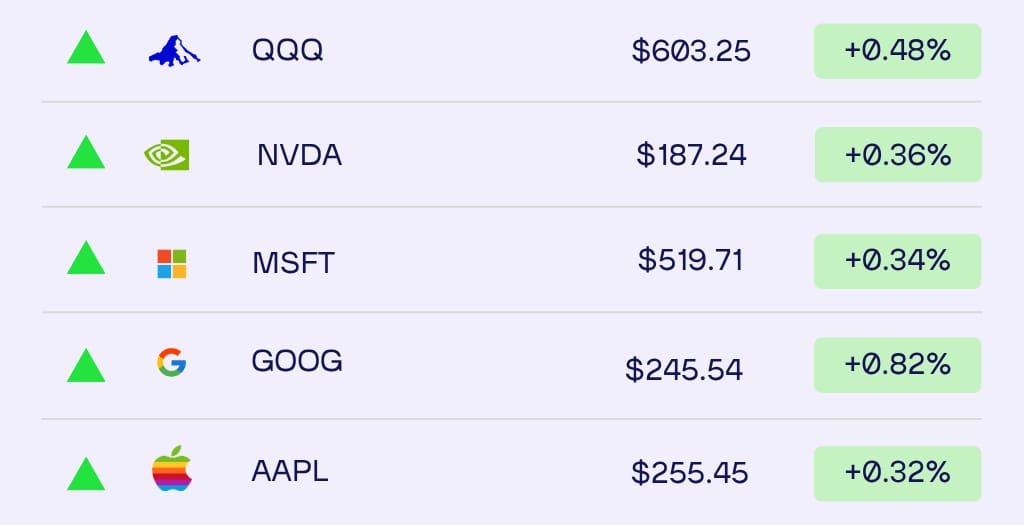
Thursday’s AI Report
• 1. ⚡ Google’s new AI devices challenge Alexa?
• 2. 🔏 Protect your online data with Incogni
• 3. 🌍 How AI reduced overstocking for this online retailer
• 4. 🧠 Identify agentic opportunities with Agentic Brain
• 5. 👀 Meta to use AI chats for ads
• 6. 🤯 OpenAI staff uneasy over Sora shift
Read Time: 5 minutes
No Robo Bosses: California Moves to Curb AI in The Workplace
Partner Column exclusively available in this edition of The AI Report
By Karen Odash — Labor and Employment Attorney at Fisher Phillips
“AI can assist, but it cannot replace human judgment when people’s jobs and rights are on the line.”


Google’s new AI devices challenge Alexa?
🚨 Our Report
Just one day after Amazon revealed its range of new AI Alexa+ smart-home devices, Google has revealed its own line-up of AI-powered smart-home devices. Ranging from Nest Cam devices (including the Nest “Indoor” and “Outdoor” security cameras and the Nest “Doorbell”) to a new Google Home speaker (which is due for release next year), these hardware products are designed to make homes “safer, smarter, and more personal,” as they’re all powered by its new “Gemini for Home” platform which utilizes Gemini AI to “understand what’s happening at home” and “what’s important to you” to “make it easier than ever to get things done.”
🔓 Key Points
Google's Nest cameras and doorbells can detect unusual activity, like unrecognized faces or broken glass, and send more detailed notifications. Or, it can condense hours of footage into a simple activity summary.
The new Home Speaker will make household tasks easier as it will do things like set personalized reminders, suggest recipes, create shopping lists, and remember names of smart home devices, so you don’t have to.
Google is giving its existing device users access to the “Gemini for Home” platform so they don’t have to buy new hardware to access the power of its AI, and also so that its new AI capabilities can be tested.
🔐 Relevance
This move shows Google’s intention to lock its Gemini AI ecosystem into the lucrative smart-home market, and rivals, like Amazon, should watch closely, as Google’s new hardware strategy could set a new standard for AI-driven devices and force competitors to rethink their offerings.
Delete your personal data from Google search results
Your number, address, DOB, and even your SSN can show up in a Google search. Marketers buy it, scammers exploit it, and in the worst cases, it ends up for sale on the dark web.
Incogni Unlimited helps you take control. Our privacy agents hunt down and delete your personal data from an unlimited number of sites. With automation across 420+ broker types—including People Search platforms and private databases—Incogni erases your information where others can’t reach.
Protect your identity before it’s too late. Use code AIREPORT for an exclusive 55% off unlimited removals.

How AI reduced overstocking for this online retailer
As it scaled, Nakie, an online eco-product retailer, found that its manual inventory management was becoming unsustainable.
Deciding when to restock, how much, and which products to prioritize was error-prone and resource-intensive.
They used AI to track stock levels, forecast demand, optimize reorder decisions, and analyze reviews, extracting customer likes/dislikes insights.
These AI tracking and restocking capabilities allowed Nakie to align its inventory to demand—reducing the risk of stockouts or overstocking.
They're here to sell you on the AI hype wave
We're here to get you real results.
We take a business-first approach, by analyzing your best processes then training a team of AI employees to increase the results.
Our 3-week workflow audit identifies 5-10 agentic opportunities you didn't know existed.
Result: 40% more talk time for your sales team to build customer relationships while AI handles the busy work.
No one-size-fits-all solutions
No unrealistic promises
No AI hype
Just strategic AI agents that increase your team's output instead of replacing them.

Barie is an AI assistant that thinks, decides, and executes like a human
Nonverbia helps teams sell better on Zoom, Teams, and Meet
Chrome Sidekick is an AI browser assistant for Chrome

Meta is planning to use data from users’ private AI chats on Facebook, Instagram, and Messenger to target users with ads, tailored to the topics they’ve been discussing (it won’t share these chats with advertisers).
It plans to start rolling this new feature out early next year as it feels it will make ads more relevant. For example, it could show travel deals to someone who is discussing booking a holiday with the AI chatbot.
Meta has stressed that this new strategy complies with “regional privacy laws,” but critics warn that this could spark fresh regulatory scrutiny over how user data is collected and used for commercial gain.

Following the launch of its social media app, Sora, OpenAI employees are concerned that the push into social media could dilute OpenAI’s technical credibility and are calling it an uncomfortable “culture clash.”
The Sora app is designed to allow users to create and share viral, “influencer-style” content, but the app is already full of realistic deepfakes of OpenAI’s CEO, Sam Altman, doing bizarre things, like stealing AI chips.
These deepfakes were all made without restriction, as Altman opened up access to his “digital profile,” allowing people to use his “likeness” to create content, which raises questions about the future potential for identity theft.

MORE NEWS

We read your emails, comments, and poll replies daily.
Until next time, Martin, Liam, and Amanda.
P.S. Unsubscribe if you don’t want us in your inbox anymore.










